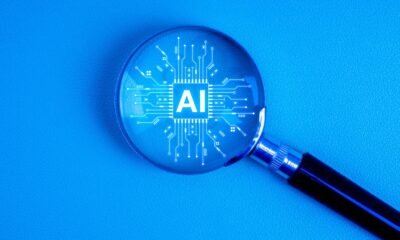AI Insights
Artificial Intelligence’ Play Differently Today?
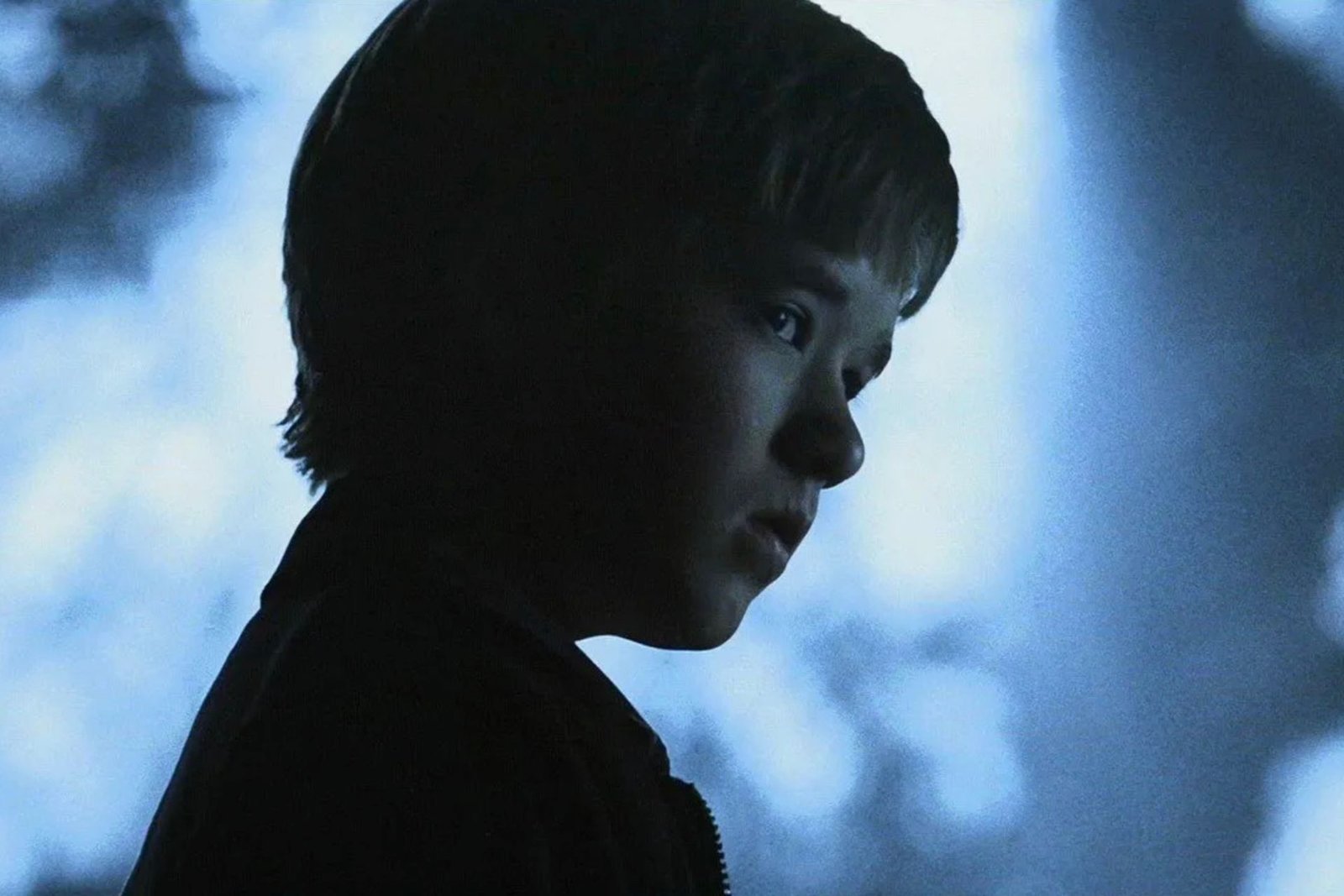
Rewatching Steven Spielberg’s 2001 film AI: Artificial Intelligence, it feels as plausible as ever, but also more misguided. In 2001, AI was barely a thought in everyday life. It was the thing that destroyed the world in Terminator, and still a lofty goal in tech circles. Today, as the technology continues to grow and dominate daily conversation in almost every way, you may expect to watch the film and have a slightly new perspective. Some change in insight. Instead, the film falters as Spielberg’s views on his titular technology take a backseat to a story unsure of what it wants to be. The movie’s flaws shine brighter than ever before, even as its world becomes increasingly familiar and likely. But, maybe, there is more to it than meets the (A) eye.
Based on a short story by Brian Aldiss and developed in large part from work previously done by the late Stanley Kubrick, AI is set in an undefined future after the icecaps have melted and destroyed all coastal cities. As a result, society has changed drastically, with certain resources becoming increasingly important and scarce. That’s why robots, which don’t need to eat or drink, have become so crucial. Tech companies are always looking ahead, though, and inventor Allen Hobby (William Hurt) thinks he’s figured out the next step. He hopes to create an artificially intelligent robot child who can love a parent just as a normal child would. Hobby sees true emotion as the logical next step in robotic integration into human life, and about two years later, he believes he has achieved it.
The first act of AI then follows David (Haley Joel Osment), a prototype child robot with the ability to love, as he attempts to help two parents, Monica (Frances O’Connor) and Henry (Sam Robards). Monica and Henry have a son, Martin, but he’s been in a coma for about five years. Assuming Martin will pass away, Henry is chosen to bring David home. Initially, Monica and Henry treat David very coldly, and rightfully so. He’s weird. He’s creepy. He does not act human in any way. So, when Monica decides to keep him and “imprint” on him, it feels like a bit of a shock. And this is the first of many places AI today just doesn’t quite get things right.
We learn that David can love whomever he’s programmed to imprint on, but that it’s irreversible. So, if for some reason the family doesn’t want him anymore, he has to be destroyed, not reprogrammed. Which feels like a pretty big design flaw, does it not? David’s deep-seated desire to be loved by Monica is crucial to the story, but watching it now, it feels almost silly that a company wouldn’t have the ability to wipe the circuits clean and start it again. Also, the notion that any parent would want to have a child who stays a child forever simply feels off. Isn’t the joy of parenting watching your kids grow up and discover the world? Well, David would never do that. He’d just be there, forever, making you coffee and pretending he loves you with the same, never-ending intensity.
Which is a little creepy, right? The beginning of AI has very distinct horror vibes that feel even more prominent now than they did in 2001. But, clearly, this was the intention. Spielberg wants to keep the characters and audience on their toes. After two decades of killer robot movies, though, it’s even more unmistakable and obvious. That unsettled tone makes it difficult to feel any connection to these characters, at least at the start.
Eventually, Monica and Henry’s son miraculously recovers, comes home, and develops a rivalry with David. The two clash, and, instead of returning David to the company to be destroyed, Monica leaves him in the woods. Which feels so much worse! Truly, it’s irredeemable. When an animal is sick beyond aid, the merciful thing is to let them go, not throw them in the woods where they will scream in pain forever. But that’s what Monica does to David. You hate her, you feel for him, and it’s weird.
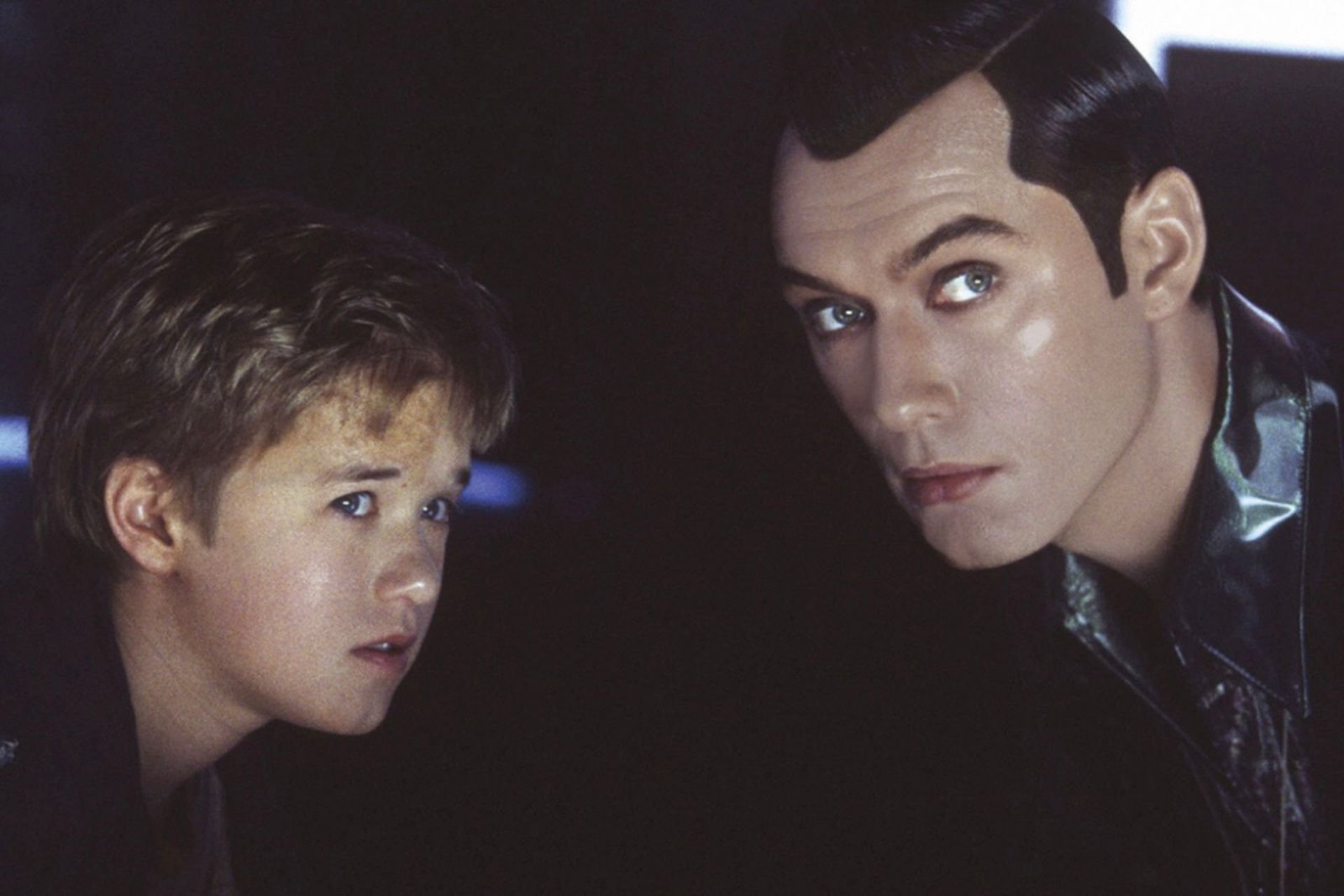
From there, AI gets even weirder. David meets Gigolo Joe (Jude Law), an artificially intelligent sex robot who has way more emotion and humanity than the ultra-advanced David (the same goes for David’s low-tech teddy bear sidekick, Teddy, the best part of the movie). The two traverse a world that has either become disgusted with machines taking over their lives or fully embraced it. It’s an interesting dichotomy, one brought to life by wild production design such as the “Flesh Fair,” where humans watch robots be destroyed for fun, and “Rogue City,” which is basically AI Las Vegas. And yet, these scenes only touch on larger concepts of what AI means and what it has done to society. Joe delivers a monologue about humans’ distrust of technology that feels poignant and thoughtful, but then it’s largely forgotten. The ideas are there, but not crucial to what’s happening around them.
What stands out about all of this, especially from a modern viewpoint, is how Spielberg’s vision of AI is still so distant. Things in the movie are well beyond what we have today. Even with modern chatbots, self-driving cars, generative AI, and the like, everything in the movie is clearly science fiction. Artificial intelligence in Spielberg’s world isn’t special. It’s been around for so long; it’s already been monetized, exploited, embraced, and rejected. One scene, however, does ring truer now than it did in 2001. As Joe and David look for the Blue Fairy that can turn him into a real boy (more on that in a second), they go to “Dr. Know,” a store where an AI Albert Einstein, voiced by Robin Williams, can search through the entirety of human knowledge to answer any question for you. It’s basically ChatGPTat its highest form, and in this world, it’s just a cheap attraction in a strip mall.
Dr. Know is a crucial plot device in the film because it puts Joe and David back on the track of the Blue Fairy, a character from Pinocchio who turned that character into a real boy, and whom David believes is real and can do the same for him. This is another disconnect that’s hard to get your head around. We’re continuously told how advanced David is supposed to be technologically, and yet he exhibits none of that mentally. He only shows the emotions and mind of a small child. There’s never any hint that he’ll learn or develop past that. That he’ll evolve in any way. He’s the most advanced robot in the world, but can’t grasp that Pinocchio isn’t real. So, we’re left confused about what he believes, what he doesn’t, his potential, and his overall purpose.
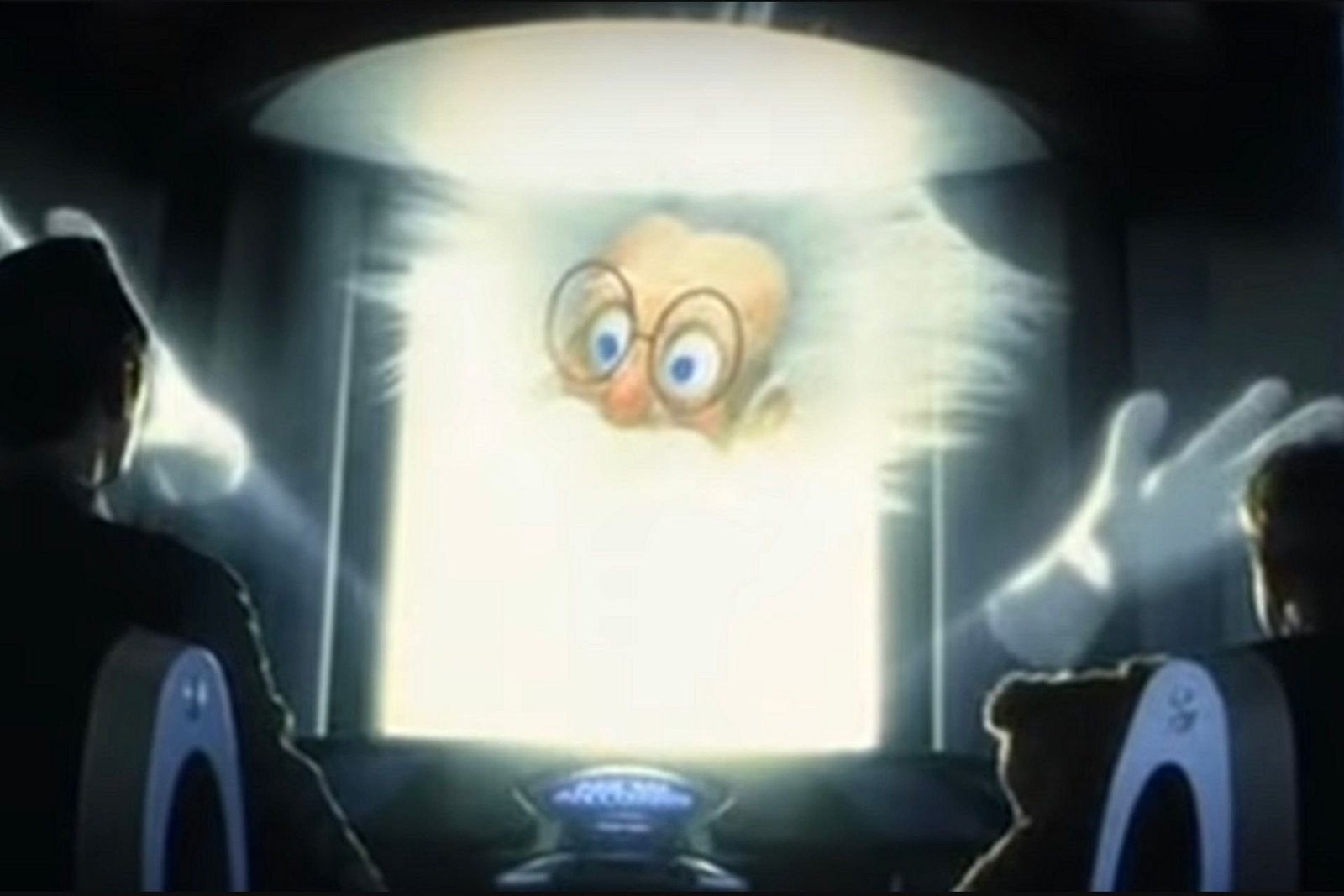
Nevertheless, when Joe and David ask Dr. Know about how the Blue Fairy can turn him into a real boy, the program somehow understands this request and sends them on a journey to Manhattan, which has been lost under rising seas. There, David finds Hobby, his creator, and we learn Hobby and his team have been monitoring and even subtly seeding David’s adventure to get him to this place. Which feels incredibly forced on multiple levels, but also essential to the big reveal.
To this point, AI has been pretty all over the place. Cautionary, brutal, near-horror movie. Wild, cross-country adventure. Whimsical fairy tale. But finally, Hobby explains the film’s central drive. Having completed this adventure, David is the first robot to actually chase his dreams. To act on his own self-motivation, not that of a human, and that’s a huge jump ahead for artificial intelligence in this world. It’s a fascinating revelation ripe for exploration. And yet, it immediately gets forgotten as Joe helps David escape and complete his journey to find the Blue Fairy, which he settles on being a submerged carnival attraction at Coney Island.
Now, I hadn’t seen AI in probably 20 years, and, for some reason, this is the ending I remember. David, stuck underwater, looking at the Blue Fairy forever. His dream, kind of, achieved. But that’s not the ending. I forgot that the movie had about 20 more minutes left. We jump ahead 2,000 years. The world has ended, and advanced aliens are here studying our past. They find David buried in the ice, the last being on the planet with any connection to living humans, and, to make him happy, they bring his mom back for one day. The happiest day of his life. Roll credits.
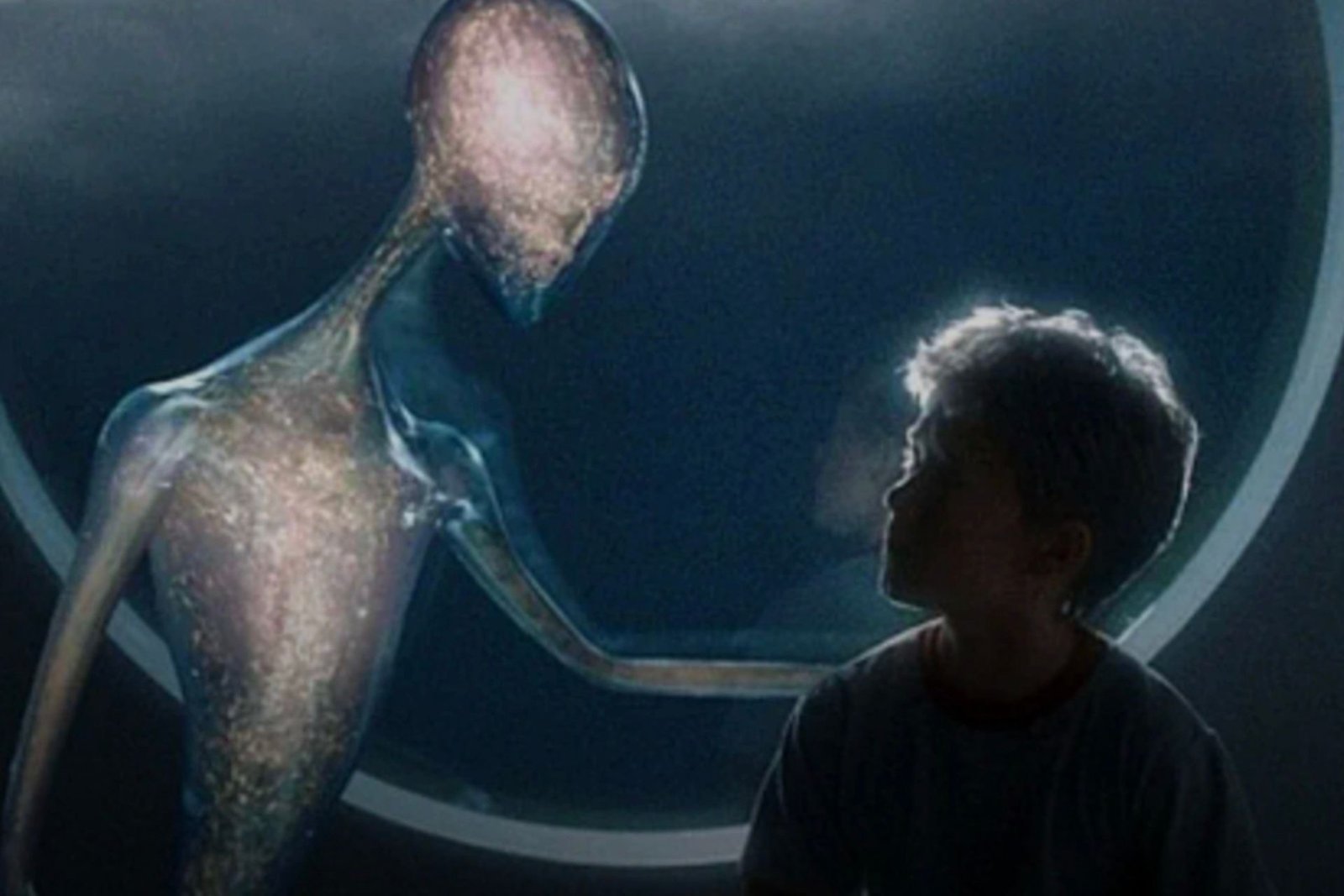
It’s a touching ending, but it also speaks to how all over the map the movie plays in 2025. Basically, the movie is a horror, fairy tale, social commentary, and sci-fi adventure with heart… but only sort of. There’s no real reason why David’s mom can’t be around for more than one day. It’s just an arbitrary rule the aliens tell us. However, it does hammer home the film’s ultimate message about the importance of love and how emotions are what make humans so special. A message that works completely independently of anything regarding artificial intelligence. In fact, calling the movie AI in 2025 is almost a conundrum beyond the movie itself. Upon release, most of us assumed the title just referred to David and the robots. But now, maybe I see that’s not the case. AI in the movie is so not the point, maybe calling it that is a commentary on human intelligence itself, or the lack thereof. We certainly take for granted the things we inherently have as people.
In the end, I did not care for AI: Artificial Intelligence as much as I did when it came out. At the time, I found it kind of profound and brilliant. Now I find it sort of messy and underwhelming, with a few hints of genius. But, there are a lot of good ideas here, and as the world of the movie becomes increasingly recognizable, I’d imagine another 25 years is likely to re-contextualize it all over again.
AI: Artificial Intelligence is not currently streaming anywhere, but is available for purchase or rent.
Want more io9 news? Check out when to expect the latest Marvel, Star Wars, and Star Trek releases, what’s next for the DC Universe on film and TV, and everything you need to know about the future of Doctor Who.
AI Insights
Cyberattack on Evertec’s Sinqia Hits HSBC, Others in Brazil

Hackers on Friday broke into Sinqia, a financial technology provider owned by Evertec, attempting to steal around 420 million reais ($77.4 million) from several Brazilian financial institutions including HSBC Holdings Plc’s local operations, O Globo reported.
Cyber criminals invaded Sinqia’s systems used by Brazilian financial institutions and attempted to make several transfers through a fast-growing electronic payments system known as Pix. Sinqia confirmed the attack but said there was no evidence of suspicious activity in any system besides Pix.
AI Insights
Metal Gear Solid back with remake years after Kojima left Konami

Tom GerkenTechnology reporter
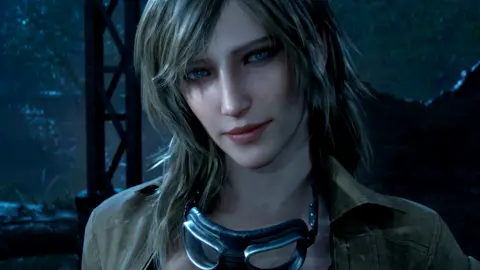 Konami
KonamiMetal Gear is one of the best-selling video game series in history, shifting more than 60 million copies.
The series pioneered cinematics in gaming by blending cutting-edge cutscenes, voice acting and dynamic camera angles to create something that would have looked more at home on the big screen at the time.
Metal Gear tackled themes not commonly seen in games, such as nuclear disarmament and child soldiers, and posed philosophical questions while also leveraging offbeat humour.
The games would often break the fourth wall and ask players to find solutions to puzzles in unusual ways – such as looking on the back cover of the game’s physical box.
The series’ significant place in gaming history meant fans were stunned when its creator Hideo Kojima quit game publisher Konami in an acrimonious split in 2015.
One of gaming’s biggest titles was left directionless – and there’s been no game in the best-selling series since.
But now, a decade later, Konami has released a remake of the third game in the series: Metal Gear Solid Delta.
So what happened between Konami and Kojima, and how does the new game hold up without its original creator?
Why did Kojima leave Konami?
“The impact Metal Gear has had on game-making makes it one of the most heralded entertainment franchises in the world, and made Hideo Kojima one of the industry’s most famous creators,” industry expert Christopher Dring told the BBC.
With such success, you might think it was a match made in heaven, but there were issues bubbling under the surface.
While nothing has been said publicly, one generally accepted theory behind the split relates to the spiralling cost of 2015’s Metal Gear Solid V, estimated by some at more than $80m (£59m) – a very significant development cost at the time.
It is not known exactly what happened between Konami and Kojima, but the studio was clearly fed up with the amount of money he was spending to make a single game – with Kojima’s internal studio actually removed from promotional materials for Metal Gear Solid V at the time.
Konami got the game out the door, but it seemed to be scaled back from its original vision despite the high cost, with repeated levels and a third chapter that never emerged.
Even so, the game still received excellent reviews and won several awards, but the rift between company and creator seemed unfixable.
And in an act that proved highly controversial – and perhaps shows how heated things had become behind the scenes – when Metal Gear Solid V won an award, Konami informed the developer he was not allowed to collect it.
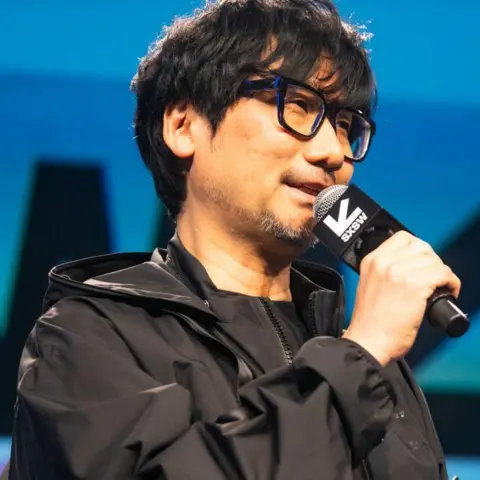 Getty Images
Getty ImagesA few months later, Kojima was gone, and in the years that followed, his former studio pivoted.
“Konami shifted its strategy for a while, away from console games, and focused its efforts on the amusements markets, things like pachinko machines,” Mr Dring said.
“They also focused increasingly on mobile.”
It meant Konami’s other classic franchises like Castlevania and Silent Hill also went without new games for a decade.
Meanwhile, Kojima’s new studio signed a blockbuster deal with Sony to develop the monster hit Death Stranding for PlayStation, followed by a sequel this year.
Why a remake now?
Gaming has pivoted towards remakes in recent years.
High-profile games like Resident Evil 4, Final Fantasy VII and Demon’s Souls, all classics in their day, have been remade with the benefits of modern graphics and game design to big fanfare – and strong sales figures.
“It’s a hugely lucrative and growing sector,” said Mr Dring.
“The industry is getting older, gamers are entering middle age and are nostalgic for classic titles.
Mr Drings points out that one of the best-selling games of the year so far is Elder Scrolls V: Oblivion Remastered, a remake of a classic Role-Playing Game (RPG) from 2007, selling millions of copies since its release in April.
Konami has begun a return to publishing games by focusing in this area, with a Silent Hill remake coming last year and a new Survival Kids game released earlier in 2025.
So it is a potentially lucrative move – but is Metal Gear Solid 3: Snake Eater the right game to remake?
 Konami
KonamiFans of the series told the BBC Metal Gear Solid 3 was chosen for good reason.
YouTuber Zak Ras said there was “immense significance” behind the game.
“Most people will say their favourite entry to the series is either Metal Gear Solid 1 or 3,” he said.
“Story-wise, given that it’s the first prequel set at the very beginning of the series timeline, it’s one of the few entries you can go into completely blind with absolutely no required knowledge of the series, other than very first Metal Gear from 1987.”
Ras said Metal Gear Solid 3 struck a good balance between gameplay and cinematic storytelling, making it a good choice for people who have never played a game in the series before.
For example, the game opens with an introduction heavily influenced by James Bond films, meaning new fans are eased into the series’ weirder elements.
And the brothers behind PythonSelkan Studios – known as Python & Selkan to their 122,000 YouTube subscribers – agreed.
“Completing the game was an incredible experience in itself,” they said. “Snake Eater’s gut-wrenching ending is what stood out most, leaving an impact on us that no other game had ever left before.”
“This game holds a special place in our hearts,” they added.
Metal Gear without Kojima
The brothers said, as lifelong fans of the series, they were “incredibly excited” by the announcement.
The pair are currently playing the remake, and have been “very impressed” by its improved graphics and audio.
They described the game as a “truly a faithful recreation”, adding that it improved “the essence of the original without changing its fundamental structure”.
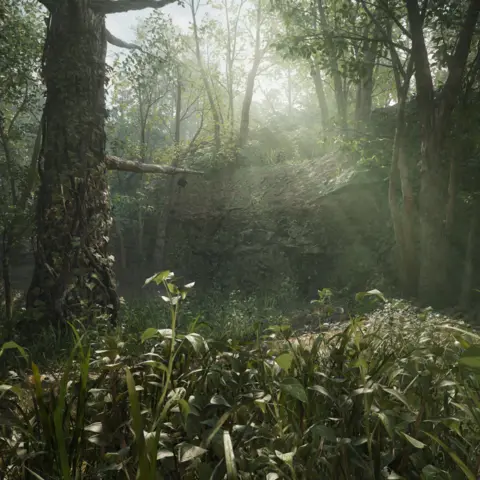 Konami
KonamiSo far so good for Metal Gear Solid without Hideo Kojima – which Ras put down to the game being true to the original.
One example he highlights is that the voice performances have been kept the same, and players can choose whether to use the original control scheme or a more modern take.
“There’s no doubt it is Kojima’s directorial ‘genes’ that are being dominantly expressed here,” he said.
“Kojima expressed a desire to move on from Metal Gear since as early as MGS2 and leave the series in the hands of others to continue.
“It may have taken him another 14 years and five director credits for that to happen, but it is now reality.”
And however the remake fares with fans, one household won’t be picking up a new copy – Kojima himself has laughed off the suggestion that he would play the new game.

AI Insights
Bitcoin Proxy’s Chief Seeks Funding Fix as ‘Flywheel’ Falters
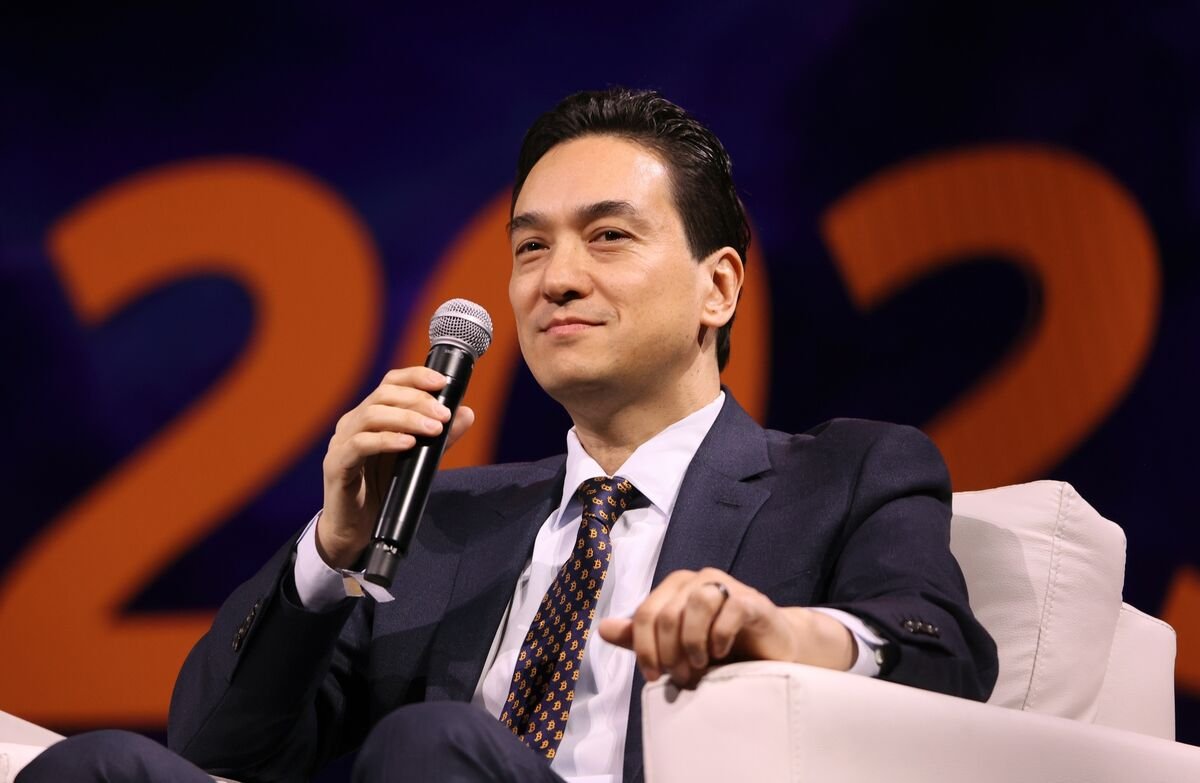
Simon Gerovich, who turned a struggling Japanese hotelier into a Bitcoin stockpiler and investor darling, is feeling the heat.
Source link
-
Tools & Platforms3 weeks ago
Building Trust in Military AI Starts with Opening the Black Box – War on the Rocks
-

 Ethics & Policy1 month ago
Ethics & Policy1 month agoSDAIA Supports Saudi Arabia’s Leadership in Shaping Global AI Ethics, Policy, and Research – وكالة الأنباء السعودية
-

 Events & Conferences3 months ago
Events & Conferences3 months agoJourney to 1000 models: Scaling Instagram’s recommendation system
-

 Business2 days ago
Business2 days agoThe Guardian view on Trump and the Fed: independence is no substitute for accountability | Editorial
-

 Jobs & Careers2 months ago
Jobs & Careers2 months agoMumbai-based Perplexity Alternative Has 60k+ Users Without Funding
-

 Funding & Business2 months ago
Funding & Business2 months agoKayak and Expedia race to build AI travel agents that turn social posts into itineraries
-

 Education2 months ago
Education2 months agoVEX Robotics launches AI-powered classroom robotics system
-

 Podcasts & Talks2 months ago
Podcasts & Talks2 months agoHappy 4th of July! 🎆 Made with Veo 3 in Gemini
-

 Podcasts & Talks2 months ago
Podcasts & Talks2 months agoOpenAI 🤝 @teamganassi
-

 Jobs & Careers2 months ago
Jobs & Careers2 months agoAstrophel Aerospace Raises ₹6.84 Crore to Build Reusable Launch Vehicle
















